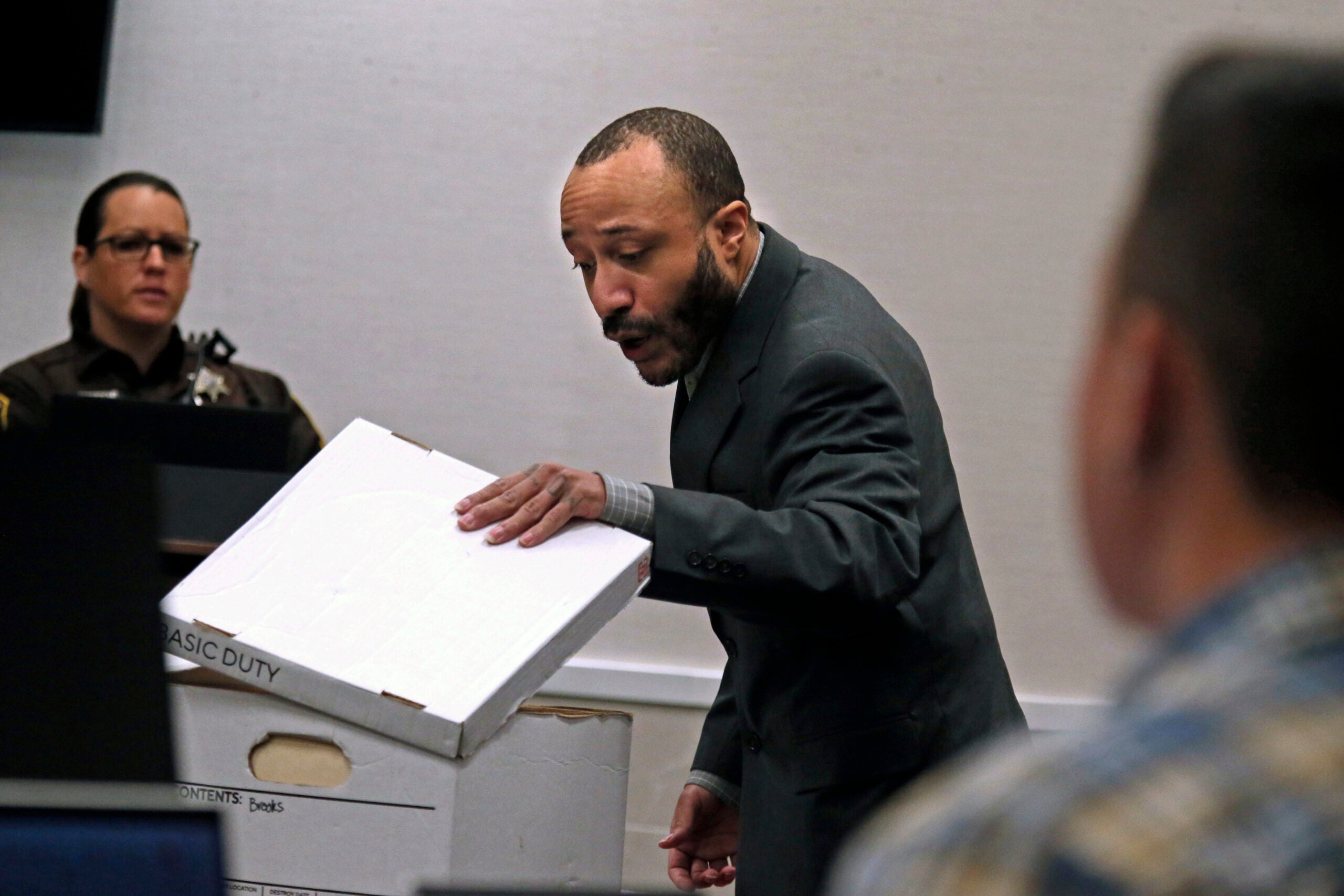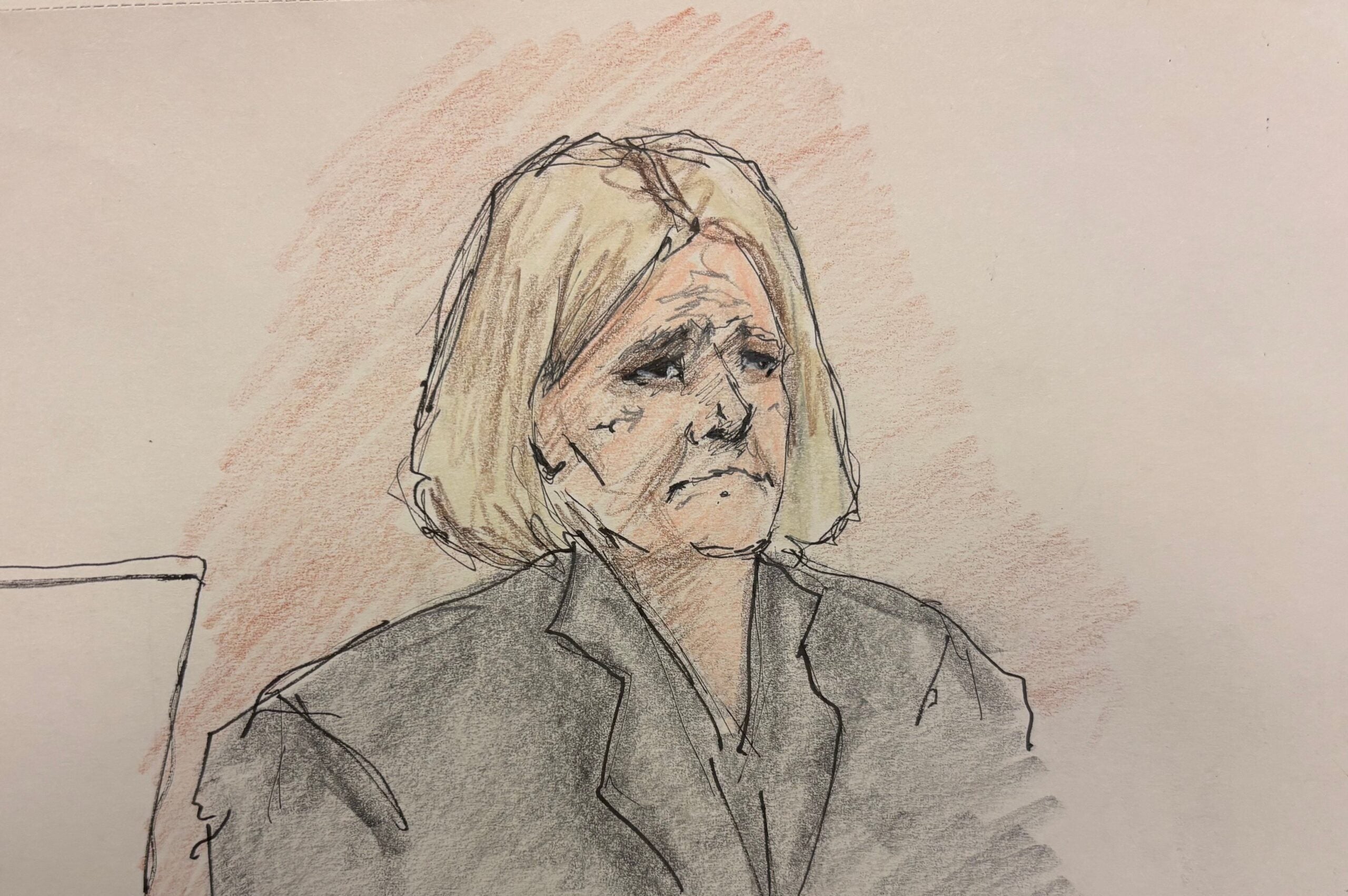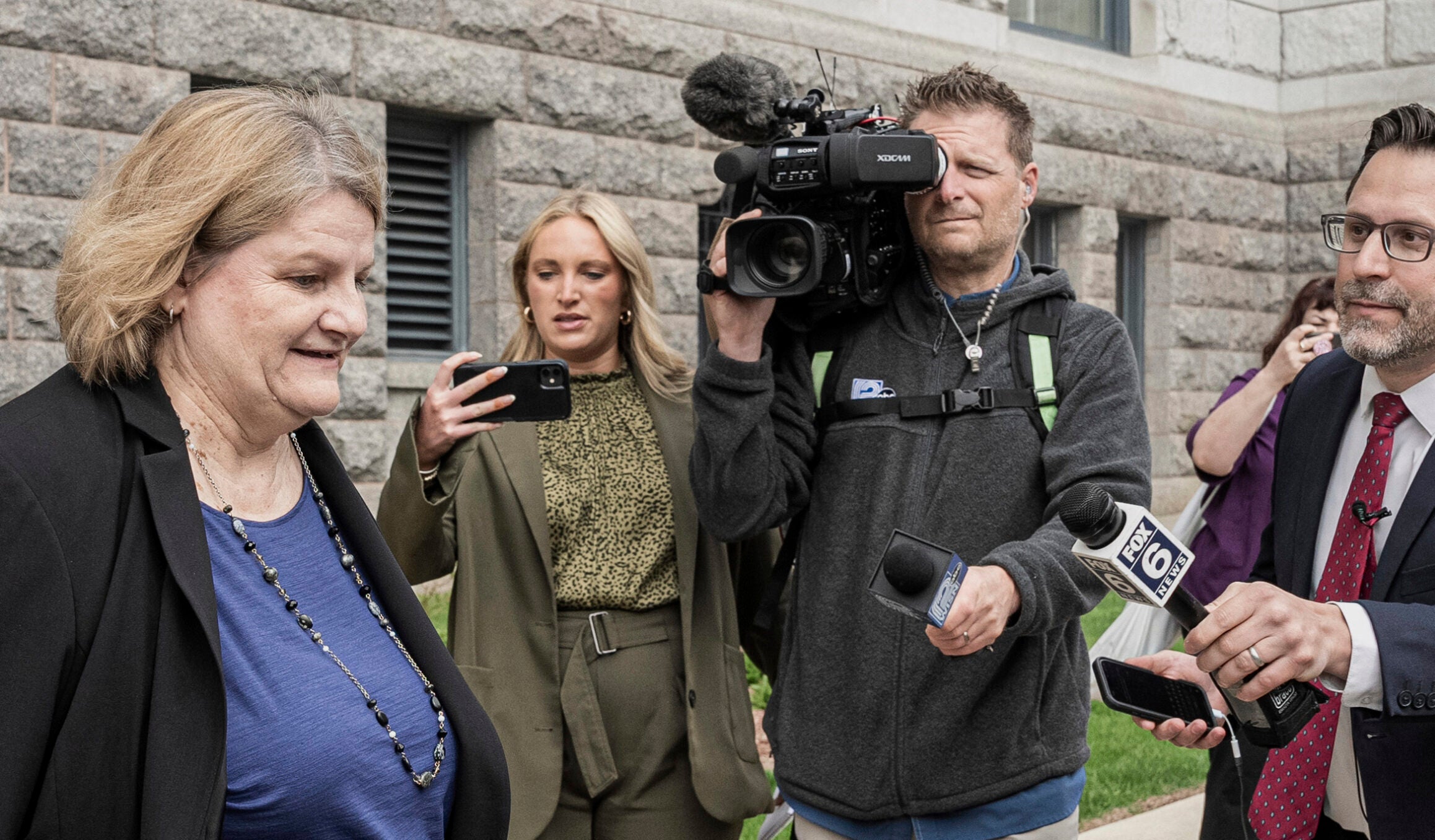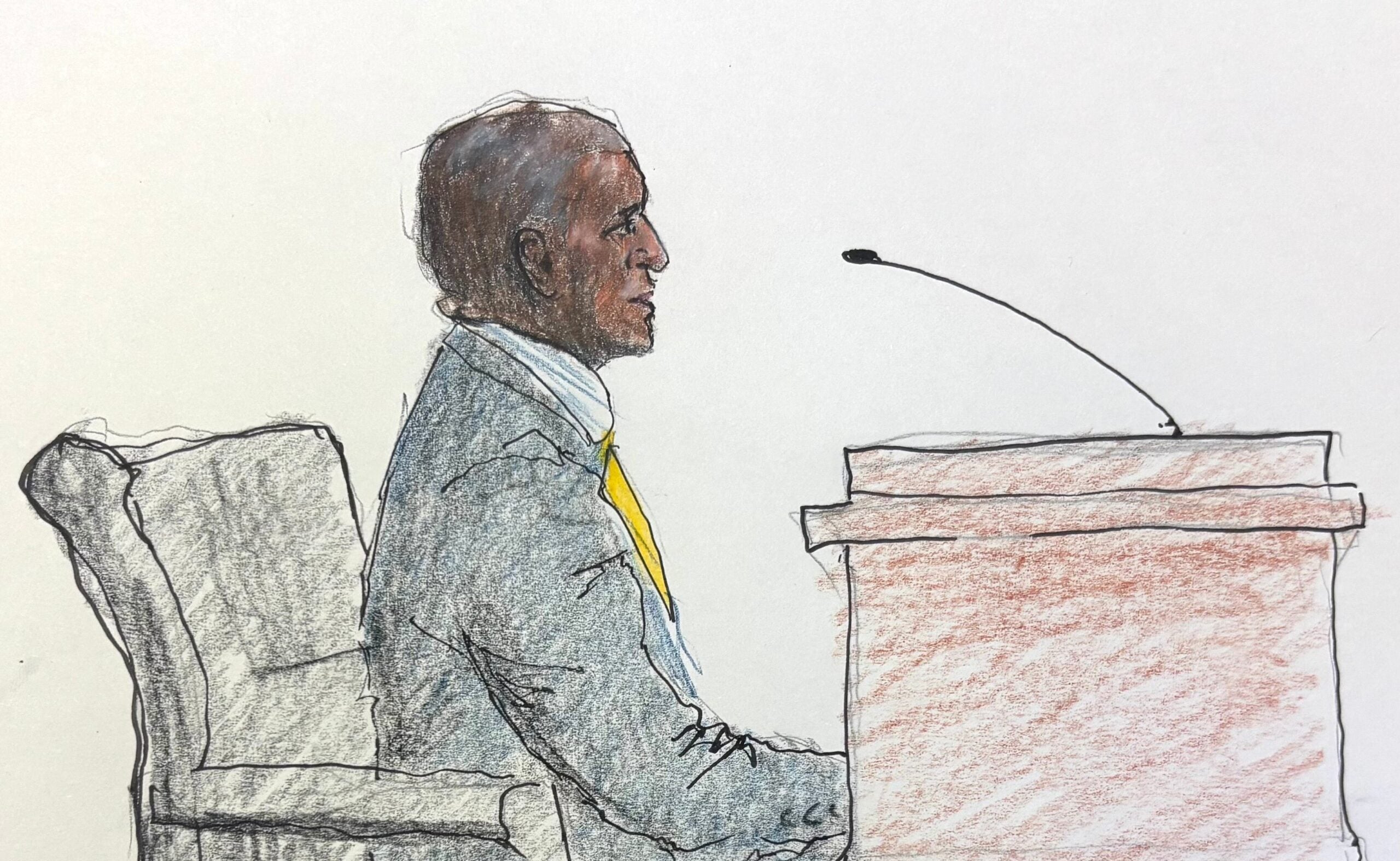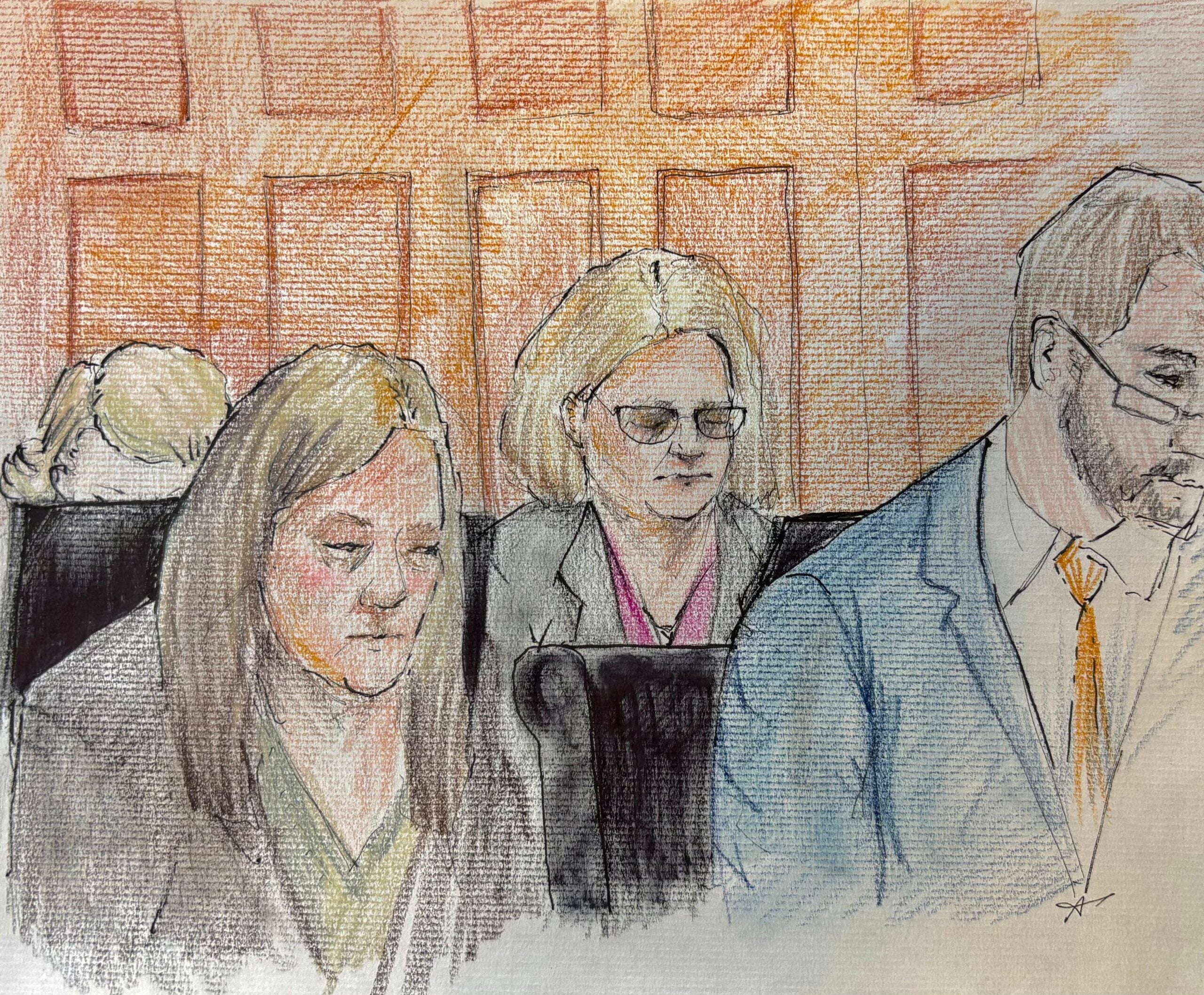The long and often chaotic trial of the man charged in the Waukesha Parade tragedy will soon be going to the jury.
Darrell Brooks Jr. has been representing himself in the trial that began Oct. 3. He faces a mandatory life sentence if convicted of killing six people and injuring dozens of others when he drove through a Christmas parade last November.
On Monday, Judge Jennifer Dorow declared the evidentiary portion of the trial over. She said she expects closing arguments to begin Tuesday afternoon. The jury would then likely begin deliberations Tuesday evening or Wednesday morning, she said.
News with a little more humanity
WPR’s “Wisconsin Today” newsletter keeps you connected to the state you love without feeling overwhelmed. No paywall. No agenda. No corporate filter.
Those closing arguments will be preceded by hours of jury instructions. The judge must read aloud the jury instructions for each of the 77 charges against Brooks.
“My best guess is that it will take between five and six hours,” Dorow said, noting there are about 70 pages she must read before closing arguments and another 30 pages afterward.
The judge said if closing arguments are complete late Tuesday afternoon, she will leave it up to the jurors to decide if they want to begin deliberating in the evening, or wait until Wednesday morning.
“I’ll leave it in the jury’s hands,” she said.
Each side will be limited to speaking for an hour.
Dorow made the decision to end the evidentiary portion of the trial because of Brooks’ repeated outbursts in court and his refusal to answer questions about his plans to call any additional witnesses.
“I specifically found that you forfeited your right to present any further evidence or testimony when you failed to answer my questions regarding the calling of witnesses, and then I also declared that you forfeited your right to testify,” Dorow told Brooks Monday.
Brooks was appearing by video from a separate courtroom Monday after he was removed from Dorow’s courtroom because of his often disruptive behavior.
He appeared to be enraged by the judge’s decision, sometimes shouting, sometimes refusing to answer questions and blocking the view of his face by piling cardboard evidence boxes in front of the camera view. One of his objections was over the judge’s refusal to allow him to submit his own handwritten notes as evidence.
“Sir, you forfeited your right to be in this courtroom because of your conduct,” Dorow said, adding at times Brooks had been shouting so loudly he could be heard in other courtrooms. She often muted his microphone unless she was asking him specific questions.
“If I’m going to be constantly muted, the only way for me to be heard is for me to raise my voice,” Brooks told the judge when she spoke to him about his behavior.
At times, Brooks said he could not hear what was happening from the remote courtroom. The judge called a technician and a sheriff’s deputy to the stand to put on the trial record that the audio was working and audible in the room where Brooks was held.
Brooks, 40, is charged with six counts of first degree intentional homicide, six counts of hit-and-run causing death, and dozens of counts of first degree recklessly endangering safety. Each of the homicide counts carries a mandatory life sentence.
In closing arguments, the prosecution will go first. Brooks will then have an opportunity to respond in a closing argument of his own, with prosecutors typically then given a chance for a rebuttal.
Brooks clashed with the judge again about the rules surrounding closing arguments, at first saying he would not speak to the jury on Tuesday. She told him he would then forfeit his right to speak directly to the jurors. He then changed course and said he planned to argue for jury nullification, or the concept that jurors can ignore the law and come to a verdict based on their own sense of justice. Dorow told him he was specifically barred by law from doing so.
“It’s very clear to this court that it’s going to be a challenge tomorrow during his closing arguments. He does not have an unfettered right to say whatever he wants or how he wants,” Dorow said in court.
Fifteen jurors have sat through the trial. Before deliberations begin, three will randomly be chosen as alternates, with 12 jurors deciding the verdict. The judge plans to sequester the jurors during deliberations. She said coming to a verdict is likely to take time because they have to consider each of the dozens of charges separately.
Wisconsin Public Radio, © Copyright 2026, Board of Regents of the University of Wisconsin System and Wisconsin Educational Communications Board.
